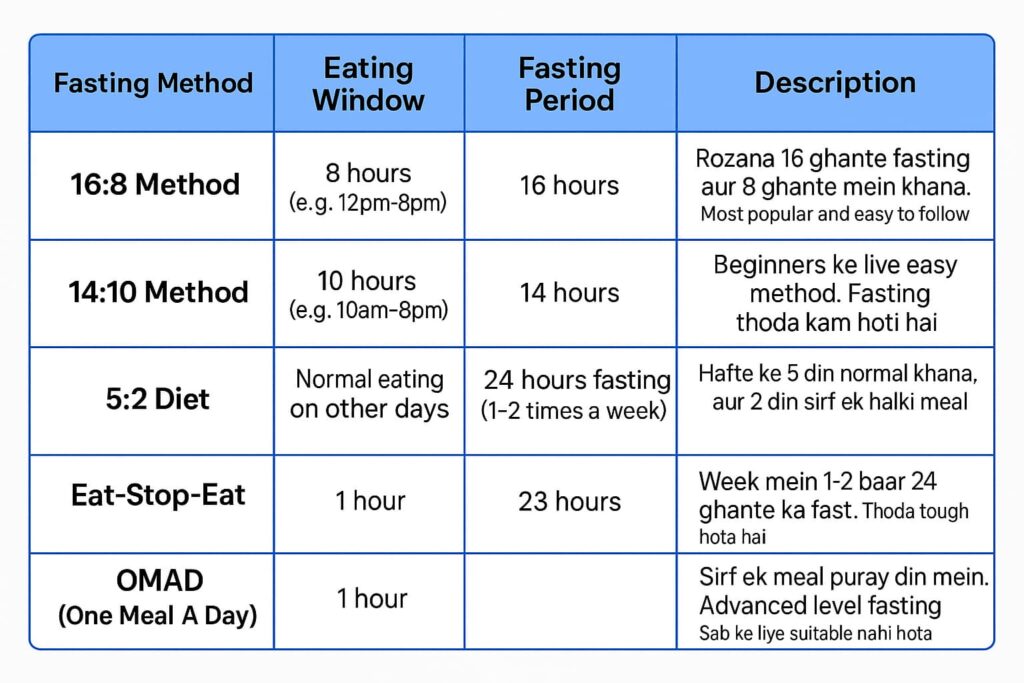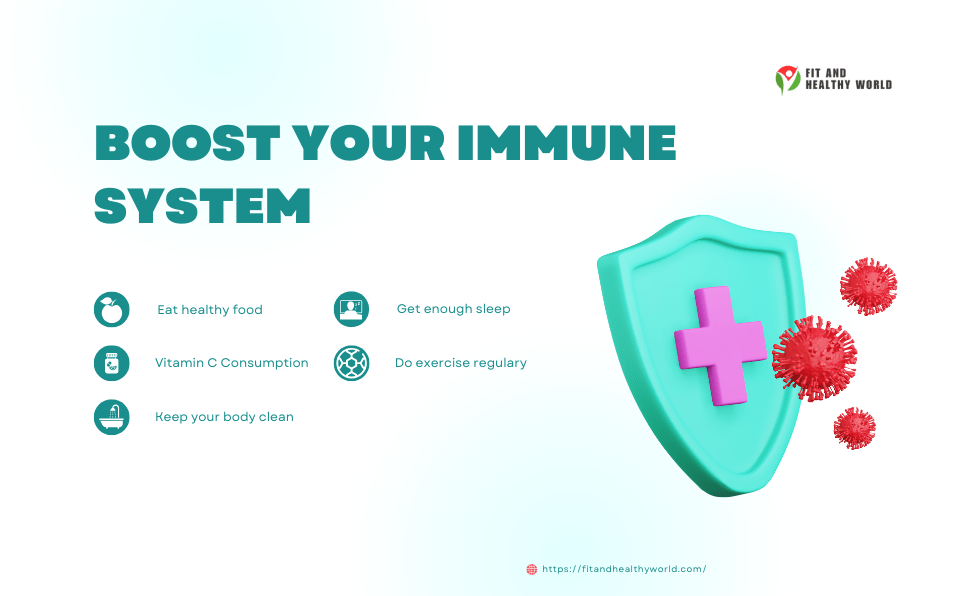Intermittent fasting is a popular and basic eating pattern that switches between periods of eating and fasting. Research shows that it has potential benefits for the heart, brain, weight loss, and metabolic health. But, if you want to try, it’s important to choose the right approach for your body and ensure that you do it safely and comfortably, especially with the severely restricted plan, a more challenging method like the 5:2 version. Some people select the Leangains protocol (16:8 method), which involves fasting for 16 hours each day and eating restricted to an 8-hour window.
This guide will cover the following topics
✔ Review the new science on intermittent fasting and heart attacks
✔ Weigh both sides — the pros and the cons of fasting
✔ Offer expert-approved tips on fasting safely
✔ Help you decide if it’s right for your heart?
Whether you’re already on the intermittent fasting train or simply interested to learn more about the potential effects and risks, this article gives the facts, not fear, so you can make an informed choice.
How does intermittent fasting work?
There are various ways of intermittent fasting, but their objective is just one, to make a routine of eating to fasting. In your daily routine, you can eat for 8 hours and remain fasting for 16 hours, or eat two meals a week. Everyone can have their own schedule, but you can select as you know about your health-related issue and can select the 5:2 or 16:8 method.
Whenever we don’t eat anything, first of all, our body consumes sugar, then it starts burning fat. This process is called “metabolic switching. Many people take some soft drinks or small pills of food, therefore, there will be no chance to burn the fat. Intermittent fasting changes this process and helps in burning the fat and usage of them in the body.
Intermittent Fasting Plans
It is necessary to consult with a specialist before starting the fast for a safe and healthy routine. If everything is stable, then there is no difficulty in adopting intermittent fasting. You can select your daily plan, i-e, you can select the daily fasting plan, for example 16:8 method_ in which 8 hours are for eating and 16 for fasting. This routine is best for those people who want to follow a simple routine. But the effects on the body of every person are different from others, so there is no uniform effect for everyone.
Another popular fasting method is the 5:2 method, in which you can eat for 5 days in a week and for the remaining 2 days of the week, you can take in 500-600 calories. In this, you can fast on Monday and Thursday, or you can select the other two days, which are best for you. But hard fasting means 24-48 hours, which may be dangerous for you. In this type of fasting, the body stores more fat to save itself. At the start of 2-4 weeks, you can feel a different type of behavior, but with time, when it becomes a routine of the body, you can feel better.

Can Intermittent Fasting Cause Heart Problems? Breaking Down the Research
When the American Heart Association (AHA) (2024) posted up their study listing 8-hour time-restricted eating associated with 91% higher risk of death from cardiovascular disease, it sent shockwaves. But wait a second, we need to analyze more what this actually could mean.
Key Findings of the AHA Study
- The study followed 20,000 adults over several years.
- If you ate in an 8-hour window, you had 50% higher cardiovascular risks compared to someone with a 12-hour+ eating window.
- The risk was especially high in people with existing heart disease.
Why This Doesn’t Necessarily Mean IF Causes Heart Attacks
While the findings are concerning, experts highlight important limitations:
🔹 Observational Study – The research only tracked eating habits, not direct causation.
🔹 No Control Over Diet Quality – Some participants may have eaten unhealthy foods during their eating window.
🔹 Possible Underlying Health Issues – People with higher heart risks might have been more likely to try extreme fasting.
What Experts Say
Dr. John Smith, a cardiologist at Harvard Medical School, explains: “This study shows a correlation, not proof that intermittent fasting causes heart attacks. More controlled trials are needed to confirm these findings.”
Bottom Line: The study poses red flags, but it does not mean that everyone should abandon IF. But those who have heart issues should use it with caution.
Are There Dangers to Intermittent Fasting? Potential Risks You Should Know
Intermittent fasting may provide weight loss and a healthier metabolism, but it can also pose risks — including for heart health.
5 Hidden Dangers of Intermittent Fasting
1️⃣ Electrolyte Imbalance & Irregular Heartbeat
- Your potassium and magnesium levels can drop after fasting, causing heart palpitations.
- Severe cases may trigger arrhythmia (irregular heartbeat).
2️⃣ Increased Stress Hormones
- Extended fasting raises cortisol, which can spike blood pressure and heart rate.
3️⃣ Nutrient Deficiencies
- Skipping meals may lead to low iron, B vitamins, and omega-3s, which are crucial for heart function.
4️⃣ Blood Sugar Swings
- Fasting can cause hypoglycemia (low blood sugar), leading to dizziness and fatigue.
5️⃣ Overeating During Eating Windows
- People binge on processed foods, which can drive heart health down.
Who Should Avoid Intermittent Fasting?
🚫 People with heart disease
🚫 People with diabetes (except doctor-supervised)
🚫 Pregnant or breastfeeding women
🚫 People with a history of eating disorders
Expert Tip: If you have a heart issue, consult a doctor before trying IF.
Does Intermittent Fasting Protect Against Heart Disease? The Surprising Truth
While the AHA study raised concerns, other research suggests IF may actually benefit heart health. Let’s weigh the evidence.
Potential Heart Benefits of Intermittent Fasting
✅ Lowers Blood Pressure
- Some studies show IF can reduce systolic blood pressure by 5-7 mmHg.
✅ Improves Cholesterol Levels
- IF may lower LDL (bad cholesterol) and increase HDL (good cholesterol).
✅ Reduces Inflammation
- Chronic inflammation is linked to heart disease—IF may help lower inflammatory markers.
✅ Supports Weight Loss
- Losing excess fat reduces strain on the heart.
When Could Intermittent Fasting Be Harmful?
❌ Yes to if done too aggressively (20+ hour fasts, etc.)
❌ Yes to if not balanced by a clean diet (junk food, sweets, etc.)
❌ Yes to people with heart conditions.
The Takeaway: IF can work for some, but it’s not an infallible heart-protective strategy.
How to Reduce Heart Attack Risk While Practicing Intermittent Fasting
If you decide to fast, employ these heart-healthy strategies to mitigate the hazards.
5 Essential Tips for Safe Fasting
1️⃣ Take It Easy – Start off with 12-hour fasting and increase it if your body gets used to it (at least for a couple of weeks or months).
2️⃣ Hydrate – Water, herbal tea, and electrolyte fluids to avoid dehydration.
3️⃣Consume Nutrient-Dense Foods – Lean proteins, healthy fats, and fiber.
4️⃣ Do Not Overeat — Don’t overeat processed food as a way of compensating for fasting.
5️⃣ Pay Attention to Your Body — If you feel dizzy, fatigued, or experience chest pain, end the fast immediately.
Best Foods to Break a Fast for Heart Health
🍗 Lean Proteins – Chicken, fish, tofu
🥑 Healthy Fats – Avocados, nuts, olive oil
🌾 Complex Carbs – Quinoa, sweet potatoes, oats
🥦 Fiber-Rich Veggies – Broccoli, spinach, kale
Pro Tip: Avoid sugary or fried foods when breaking a fast—they can spike blood sugar and harm heart health.
Why Is No One Talking About the Heart Risks of Intermittent Fasting?
Despite the AHA study, many influencers and health gurus still promote IF without warnings. Here’s why:
🔸Risk versus reward — Seeing quick loss in the short term vs long term potential fate.
🔸Celebrity Promotions – High-profile personalities promote Intermittent Fasting if there are any risks mentioned.
🔸Absence of Long-Term Studies — Most studies are focused on short-term effects: They do not consider decades-long consequences.
Key Takeaway: Always research beyond headlines and consult a doctor before starting IF.
Final Verdict: Should You Try Intermittent Fasting for Heart Health?
The reality is always shades of gray. IF may help some people but harm others.
Who Might Benefit?
✔ Healthy individuals without heart conditions
✔ Those looking to improve metabolism and lose weight
✔ People who can maintain a balanced diet during eating windows
Who Should Avoid It?
❌ People with heart disease, diabetes, or high blood pressure (unless approved by a doctor)
❌ Those with a history of eating disorders
❌ Pregnant or breastfeeding women
Alternative Heart-Healthy Strategies
If IF isn’t right for you, try:
- Mediterranean diet (rich in fish, olive oil, and veggies)
- Regular exercise (150 mins of moderate activity per week)
- Stress management (yoga, meditation, deep breathing)
Summary
Intermittent fasting isn’t a bad idea, but it has risks. If you have heart issues, consult a doctor before beginning. Moderation and balanced eating are the best bets for long-term heart health for most people.
FAQs on Intermittent Fasting & Heart Health
❓ Can intermittent fasting cause heart problems?
Yes, extreme fasting may lead to electrolyte imbalances, irregular heartbeat, and increased stress on the heart.
❓ How to reduce the chances of a heart attack?
- Eat a balanced, whole-food diet
- Exercise regularly
- Avoid smoking and excessive alcohol use
- Manage stress
❓ Does intermittent fasting increase heart rate?
It can, due to higher cortisol levels. If you notice a racing heart, stop fasting.
❓ Can intermittent fasting improve heart health?
Maybe, but only if done safely and under medical supervision.



